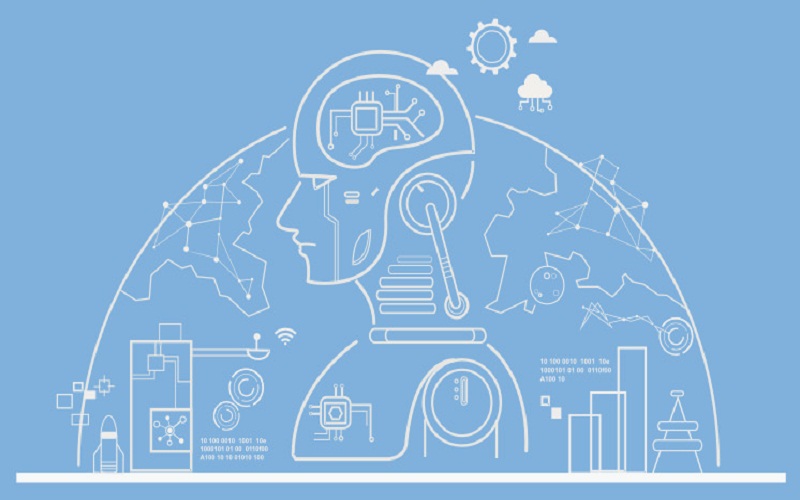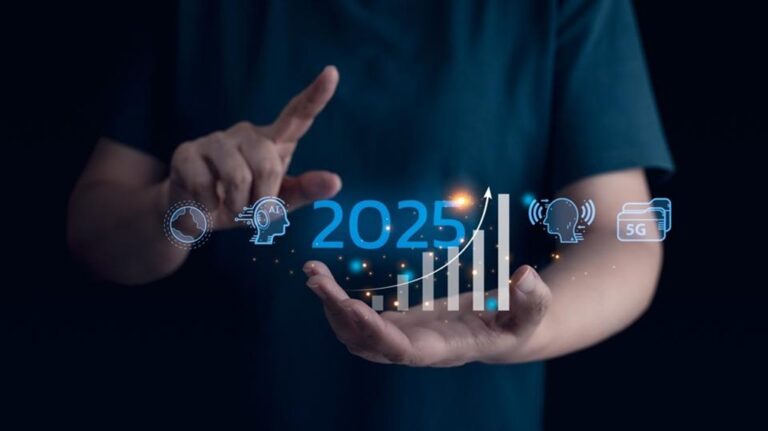Artificial Intelligence– A long time ago he abandoned the science fiction spectrum to sneak into our lives and, although still in a very early phase, is called to star in a revolution comparable to that generated by the Internet.
Intelligent machines mimic the cognitive functions of humans. Intelligent machines mimic the cognitive functions of humans. The Artificial Intelligence (AI) is the combination of algorithms raised in order to create machines which have the same capabilities as the human being. A technology that is still far away and mysterious, but that for a few years is present in our day to day at all hours.
TYPES OF ARTIFICIAL INTELLIGENCE
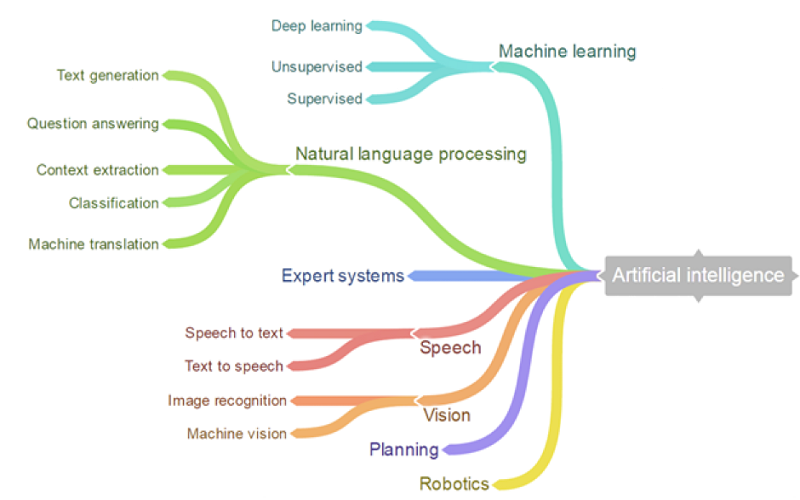
Computer science experts Stuart Russell and Peter Vigor differentiate several types of artificial intelligence:
Systems that think like humans: automate activities such as decision making, problem solving and learning. An example is artificial neural networks.
Systems that act like humans: these are computers that perform tasks in a similar way to how people do. It is the case of robots.
Systems that think rationally: they try to emulate the rational logical thinking of humans, that is, they investigate how to make machines can perceive, reason and act accordingly. The expert systems are included in this group.
Systems that act rationally: ideally, they are those that try to rationally imitate human behavior, like intelligent agents.
PRACTICAL APPLICATIONS OF ARTIFICIAL INTELLIGENCE
The AI is present in the facial detection of mobiles, in virtual voice assistants such as Sir from Apple, Alexei from Amazon or Cortland from Microsoft and is integrated in our everyday devices through bots (abbreviation of robots) or mobile applications , such as: Lily External link, opens in a new window. , a personal shopper in digital version; Paula External link, opens in a new window. , designed to help us with language learning; Ems External link, opens in a new window., designed to make us a little more bearable the arduous task of finding new floor; or Grant External link, opens in a new window. , a virtual assistant of Facebook that emits ‘diagnoses’ doctors. The goal of all of them: to make people’s lives easier.
Advances in AI are already driving the use of big data due to its ability to process huge amounts of data and provide communication, commercial and business advantages that have led it to position itself as the essential technology of the coming decades. Transport, education, health, culture … no sector will resist its charms.
The last musical hit of the moment
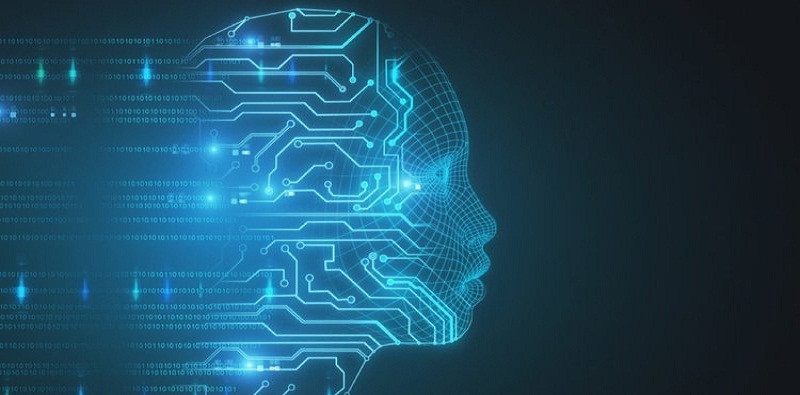
Have you ever imagined that artificial intelligence could contribute to creating musical hits? The single Not Easy by X Ambassadors, Ellie King and Wiz Halifax reached number 4 in the iTunes Hot Tracks ranking . Surely you are wondering, and at what time did the AI take place? Well, precisely, the single was based on findings obtained through Big Data. Artificial intelligence sought millions of conversations, newspaper headlines and speeches that led to the song’s main theme: heartbreak. After they defined the theme, the machine learning algorithms programmed to generate music found various musical elements that gave them ideas about how this piece should sound.
The fortune teller who will know it before you
Do you want some examples where you have detected issues that we humans might have overlooked? Here you go 3! The AI can guess assertively if people are heterosexual or homosexual based on the photographs of their faces. A study by Stanford University found that an algorithm could correctly distinguish men who were gay in 81% of cases, from those who were not; and in the case of women, it was 74% correct on this same issue. But that is not all. Face book is using artificial intelligence bots that can save the lives of people at risk of committing suicide. As explained in an article by Fast Company , the company announced a pilot project in the United States in which they used AI to proactively identify Face book posts that could indicate a suicide inmate. Face book’s AI technology identified more than 100 cases that required intervention.
How is it possible that things like these can be anticipated or predicted with such a degree of certainty?
Even if you plan to give up your current job, the AI may know it before the Human Resources area. IBM has a solution that uses predictive analytics to identify staff retention issues. This program can find common factors that cause staff to give up. And this results in the generation of a quality score for each employee, based on the projected probability that he will leave the company soon.
Photographs that turn into purchases
How many times have you seen something you like and take a picture and then look for something similar or similar in stores?
Now you will not have to complicate yourself. The e-commerce giant, Amazon, has already incorporated visual search functionality into its mobile application . Just take a picture of the object you want and it will show you something very similar or identical. The possibility of buying it instantly is already in your hands! Thanks to the AI, the gap between those “moments of inspiration” and the eventual purchase will be eliminated, making the transition between seeing a product and buying it happen without any complications.
MAIN APPLICATIONS OF ARTIFICIAL INTELLIGENCE
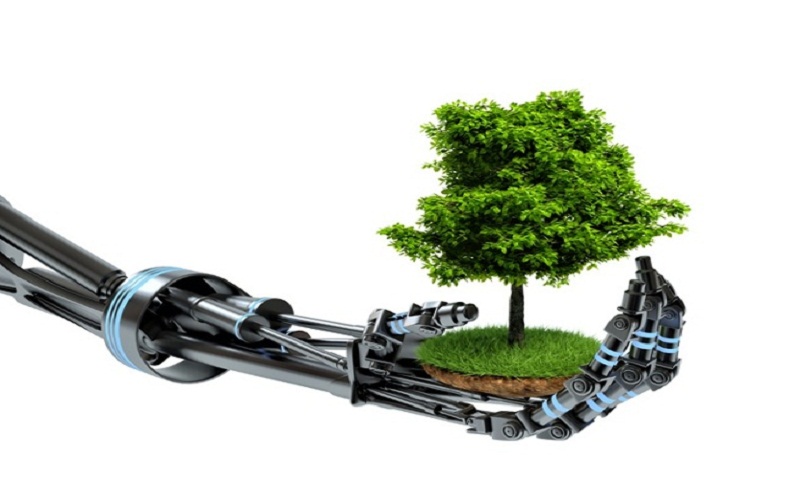
We will live with interactive chat bots that can suggest products, restaurants, hotels, services, shows, according to our search history.
FINANCE
Smart technologies can help banks detect fraud, predict market patterns and advise operations to their customers.
EDUCATION
It lets you know if a student is about to cancel their registration, suggest new courses or create personalized offers to optimize learning.
COMMERCIAL
It makes it possible to make sales forecasts and choose the right product to recommend it to the client. Companies like Amazon use robots to identify whether or not a book will succeed, even before its release.
CLIMATE
Drone fleets capable of planting one billion trees per year to combat deforestation, unmanned underwater vehicles to detect leaks in oil pipelines, intelligent buildings designed to reduce energy consumption, etc.
AGRICULTURAL
Specific platforms that, through predictive analysis, improve agricultural yields and warn of adverse environmental impacts.
LOGISTICS AND TRANSPORTATION
It will be useful when avoiding collisions or traffic jams and also to optimize traffic. Tesla has developed a system thanks to which, when one of its cars transits a route for the first time, it shares the information with the rest.
HEALTH
Chat bots already exist that ask us about our symptoms to make a diagnosis. Data collection generates patterns that help identify genetic factors susceptible to developing a disease.
THE SIX LAWS OF ROBOTICS PROPOSED BY THE EUROPEAN PARLIAMENT
This vertiginous irruption of AI and robotics in our society has led international organizations to consider the need to create regulations to regulate their use and use and thus avoid possible problems that may arise in the future.
- The robots must have an emergency switch to avoid any danger situation.
- They can not harm human beings. Robotics is specifically designed to help and protect people.
- Emotional relationships can not be generated.
- It will be compulsory to contract insurance for the largest machines. In the event of any material damage, the owners will assume the costs.
- Your rights and obligations will be legally classified.
- The machines will pay social security. Your entry into the labor market will impact the labor of many companies. The robots must pay taxes to subsidize the aid of the unemployed.
The wisest investor

In 2009, Ira Sages of Business week magazine challenged Quid AI Company Director, Bob Good son, to program a computer to choose 50 companies that nobody had heard of at the time and that would be destined to become the most successful startups. Almost 8 years later, the magazine reviewed the list to see how assertive the predictions of “Good son and his machine” had been. The results even surprised the creator: Ever note, Spottily, Easy, Zing, Plantar, Cloud era, POWER – and the list goes on … 20% of the companies that chose the computer have reached the trillion dollar valuation.
Both technologies are already changing the world and the figures are the best example of this: the US consultancy Garner predicts that by 2020 85% of the interaction with customers will be managed by IA and, overall, it is estimated that the market of the IA can reach 127,000 million dollars in 2025, a figure much higher than the 2,000 million in 2015. The United States and China will take the lead in investments.
And although there are voices like that of the Swedish philosopher of the University of Oxford, Nick Stromboli, who anticipates that “there is a 90% chance that between 2075 and 2090 there are machines as intelligent as humans”, or that of Stephen Hawking, who adventure that the machines will completely surpass humans in less than 100 years, the truth is that far from becoming obsolete, AI will make us more efficient and allow us to perform actions that we could never have done due to its complexity. Can you imagine exploring parts of the universe that are totally hostile to humans? Thanks to her, one day will be possible.
Finally, you probably already knew that some of the applications you use every day use Artificial Intelligence, such as Netflix, Spottily, Sire, among others. And maybe you’ve also heard about robots that play chess, poker and other table games better than any human being. Every day new uses and applications of Artificial Intelligence arise that bring us closer to an unprecedented future. A future that we could not have imagined.

